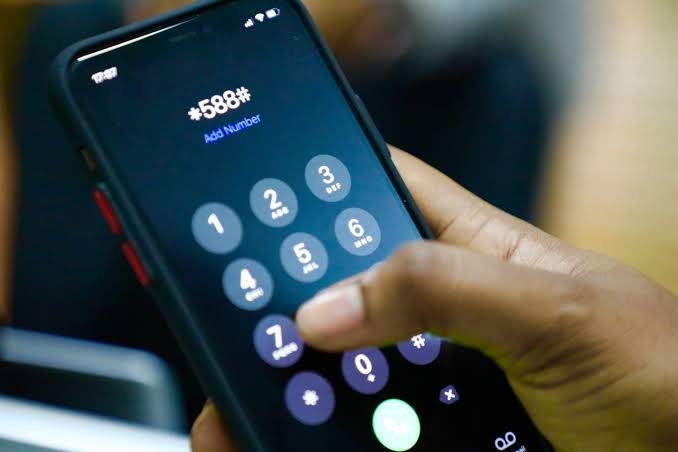Physical Address
60 Ekwema Cres, Layout 460281, Imo
Physical Address
60 Ekwema Cres, Layout 460281, Imo

A long-standing dispute between Nigerian banks and telecom companies regarding a $132 million USSD debt appears to be nearing a resolution, albeit slowly.
The crux of the issue lies in the unpaid fees accrued by banks for utilizing Unstructured Supplementary Services Data (USSD) for mobile banking services.
This debt has strained the relationship between the two industries for several years, prompting intervention from the Central Bank of Nigeria (CBN) and the Nigerian Communications Commission (NCC) to bridge the gap.
The origin of the Nigerian banks’ USSD debt telecom resolution issue dates back six years.
Telecom companies have long maintained that Nigerian banks owe them a significant sum for using USSD services to facilitate mobile banking transactions.
This claim has been a source of friction, with telcos arguing for transparency in the billing process and timely compensation for their services.
See this: Standard Bank Denies Security Breach Allegations
In late 2023, a sigh of relief emerged when reports surfaced that Nigerian banks had finally commenced repayments on the USSD debt.
This development was attributed in part to the instrumental role played by CBN Governor Olayemi Cardoso, who reportedly urged the banks to settle their outstanding dues.
However, the repayment process has been sluggish, raising concerns among telecom companies.
Gbenga Adebayo, president of the Association of Licensed Telecommunication Operators of Nigeria (ALTON), expressed his dissatisfaction with the pace of repayments, highlighting the potential for the debt to balloon if the situation persists.
He emphasized the telcos’ belief that Nigerian banks are capable of expediting the repayment process.
The slow pace of repayments has led some to suggest that the banks are deliberately delaying the process.
One source claimed that this delay is a tactic employed by the banks to exert pressure on the telcos.
Read: 11 Things to Consider When Buying a Used HP, Dell or Mac laptop in Nigeria
Nigerian banks have countered the claims of the telcos, arguing that there was never a formal agreement in place regarding the sharing of USSD fees.
A bank CEO, who spoke on condition of anonymity, revealed that banks were unaware of the telcos’ interest in charging fees until threats of service cuts arose.
Furthermore, some bank executives, including the late Herbert Wigwe, CEO of Access Holdings, have cast doubt on the legitimacy of the debt itself.
They have questioned the transparency of the billing process employed by the telcos to arrive at the $132 million figure.
In 2023, Segun Agbaje, CEO of GTCO, argued that the responsibility for collecting fees should lie with the telcos since they retain the entirety of the ₦6.98 fee per transaction.
This stance contradicts the regulatory requirement that mandates banks to collect and remit these fees to the telcos.
The banks’ apparent resistance is reflected in their slow approach to repayments.
Read More: NCC Suggests Partnerships to Cut Telecom Costs in Nigeria
Telecom companies originally conceived USSD technology to provide customers with a means to access airtime and subscription services.
However, it swiftly emerged as a powerful tool for mobile banking, particularly for those without internet access or smartphones.
This accessibility offered by USSD played a significant role in driving financial inclusion in Nigeria.
The widespread adoption of USSD by banks is evident in the launch of prominent marketing campaigns for USSD shortcodes.
For instance, GTCO launched its *737 shortcode in 2016, a move that was emulated by other major banks.
While USSD transactions peaked at ₦5.1 trillion in 2021, the value has declined to ₦4.4 trillion in 2022.
Despite its prevalence, USSD transactions have the lowest average transfer value of ₦10,000 compared to the industry average of ₦70,000 for mobile apps and online transfers, according to data from the National Bureau of Statistics.
This low value discourages banks, as they generate no revenue from USSD transactions.
Read this: Lagos State Government in a Move to Sanction Uber Nigeria
As the Nigerian financial industry grapples with rising fraud cases, USSD security has become a growing concern for banks.
This could further dampen their enthusiasm for prioritizing USSD services and, consequently, slow down the debt repayment process.
The lingering debt has led some bank experts to advocate for the telcos to write it off entirely.
A significant number of bank executives shares this sentiment.
Was this information useful? Drop a nice comment below. You can also check out other useful contents by following us on: